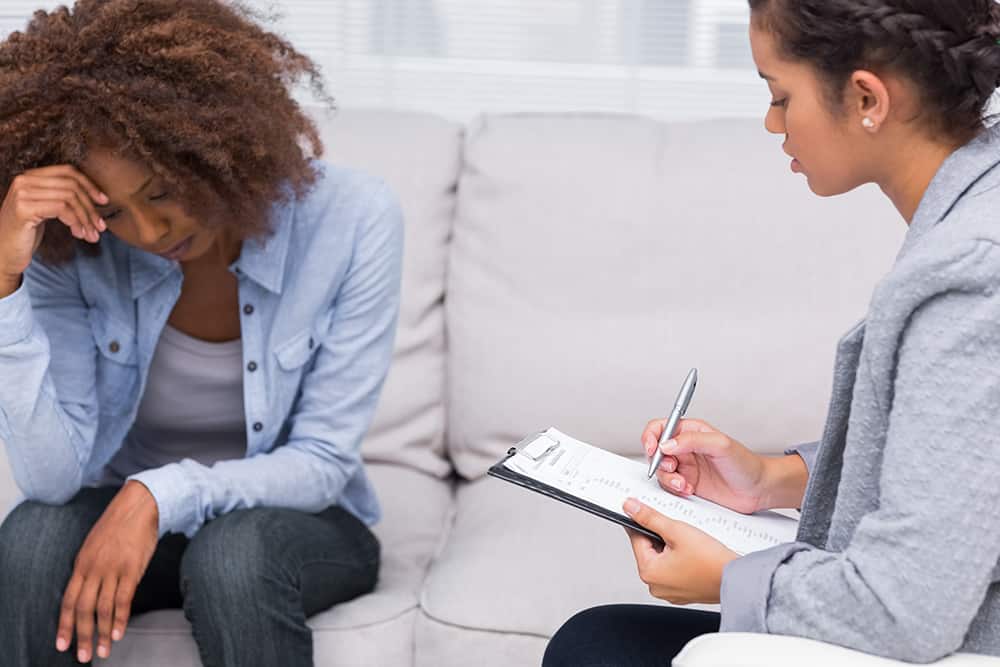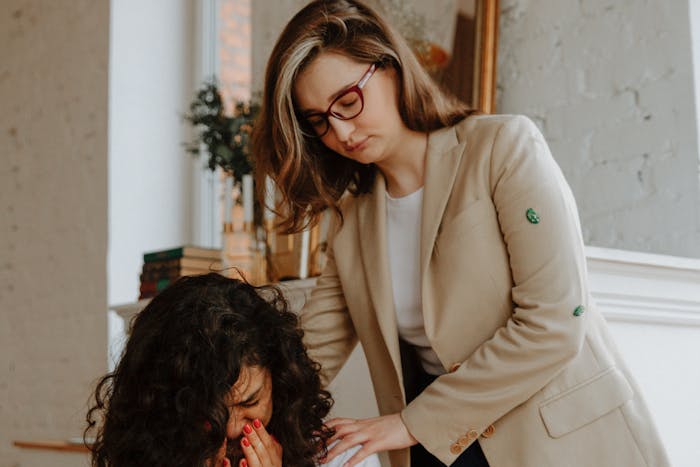Grief Counseling in Melbourne, FL
What is Grief
Loss can trigger grief, which is normal and may influence your mental and physical health. Feeling sadness, anger, guilt or loneliness is common if you are dealing with the death of someone close, divorce, job loss or a large life transition. At our counseling Center in Melbourne, FL, we’re aware that grief reaches people of all age groups, and we are here to assist you with care and support.
the Types of Grief?

There are several types of grief that can be experienced in different ways.
Abbreviated Grief
Abbreviated grief is a fast form of grieving that happens after a person experiences a loss. It often works itself out more rapidly than one expects, especially when the person has already started to deal with the loss or quickly finds a new way to feel connected.
Absent Grief
Absent grief is a term used to say that people who have experienced a loss do not display typical sorrow. People with dementia could find it difficult to show their feelings and they might not realize they are experiencing grief.
Acute Grief
You experience acute grief by feeling sorrow immediately after losing someone. People often feel this way right after the loss and the emotion can persist for six months or more.
Anticipatory Grief
People go through anticipatory grief before the loss itself happens. Many times, this happens when someone recognizes that a loved one is very sick and they grieve even before their passing.
Collective Grief
When something big happens like a natural disaster, mass attack or serious crisis, a group or community experiences grief together.
Complicated Grief
Complicated grief means someone mourns for a long time or very deeply, which interferes with their everyday life. Some cases may need help from mental health experts.
Chronic Grief
Experiencing chronic grief is having sorrow that lasts for a long time. It may appear following important changes or upheavals, such as losing a pet or experiencing a big life event and sometimes goes on for years.
Cumulative Grief
Grieving for many losses that happen close together builds over time. Each further loss can increase how someone is affected emotionally and make it tuff to cope.
Delayed Grief
If we delay grief, we put off the emotional responses to a loss. Grieving may only start months or even years after the loss, frequently because of suppression, denial, or what is happening in life.
Disenfranchised Grief
Someone experiences disenfranchised grief if society doesn’t acknowledge or support their loss. For some, it could be grieving the loss of a miscarriage, the death of a pet or the fact that someone in a stigmatized relationship has passed away.
Distorted Grief
There are intense or strange feelings associated with loss when grief is distorted and these feelings may not be normal for the culture or society. At times, it includes anger, self-harm or aggressive behavior.
Grief can affect different people in many different ways. Hence, counseling sessions here are tailored to address the individual requirements of the client. Experienced grief counselors are ready to guide you through any grief situation, helping you cope and heal during this hard period. Call us today to arrange a consultation and begin the journey to recovering from emotional distress.

CALL US NOW
Orlando Treatment Solutions will iron out the details for you in a manner that will make you confident in your path to sobriety. That first simple call is your ticket to making Orlando Treatment Solutions your solution for addiction. Get the freedom from addiction that you deserve today.
What are the Normal Symptoms of Grief?
Symptoms of grief vary but may include
- Hopelessness
- Shock or disbelief
- Anger or irritability
- Guilt and self-blame
- Sadness and crying often
- Loneliness and depression
- Confusion and difficulty concentrating
- Physical symptoms such as fatigue, insomnia, aches, pains, and changes in appetite
the Five Stages of Grief?

The five stages of grief, as originally proposed by Elisabeth Kübler-Ross in her 1969 book On Death and Dying, are
Denial
Anger
Bargaining
Depression
Acceptance
Denial
Going through denial is something that usually happens when someone is grieving. It helps us manage the pain of losing someone and gives us space to start working on how we feel. But anger, bargaining, depression and acceptance might show up next, in any order. Everyone feels grief differently and not every person will experience all five stages.
Anger
Feeling grief makes people experience a range of feelings, among them anger, frustration and guilt. Feeling angry about the situation leading to the loss or about the person who has gone, is very natural.
Bargaining
Trying to negotiate with the reality of death is a way to try to keep grief away. At this point, many people think, “If only things were different,” imagine alternative situations and make commitments to a higher power, all to help them avoid the sorrow of losing someone.
Depression
Experiencing grief leads to depression with time. Even though depression appears as sadness, it also impacts the way a person sleeps and eats. Orlando Treatment Solutions in Melbourne, FL, offers counseling for depression that is caused by grief.
Acceptance
The last part of grief is accepting what has happened. The person accepts what happened and starts to proceed with life. For everyone, acceptance may take on its form, and such centers help people find the right way to overcome their grief.
How Can Orlando Treatment Solutions Assist With Grief?
At the very end comes acceptance. The individual has faced what happened and can keep going. The way a person copes with grief might be different, and counseling centers such as Orlando Treatment Solutions in Melbourne, FL, help people find just the right approach.
At Orlando Treatment Solutions in Melbourne, FL, people going through grief can get understanding counseling from us. The care and guidance of our counselors give clients a calm and encouraging place to work through feelings and make progress in healing.
A natural outcome of loss, grief can still be a very difficult experience. The team in Melbourne supports each person by discovering what triggers their emotions, showing them how to cope better, and giving individual help. We believe that having support is important after grief and it helps people recover.
A mix of private counseling and family meetings helps families deal with the emotions related to a loss. We also provide support groups for people going through collective grief resulting from community disasters or major disruptions.

Orlando Treatment Solutions in Melbourne, FL, is available to help you through grief, whether you need help or you are supporting someone else. Let us know if you would like to explore our grief counseling and discover how we can assist you now.












